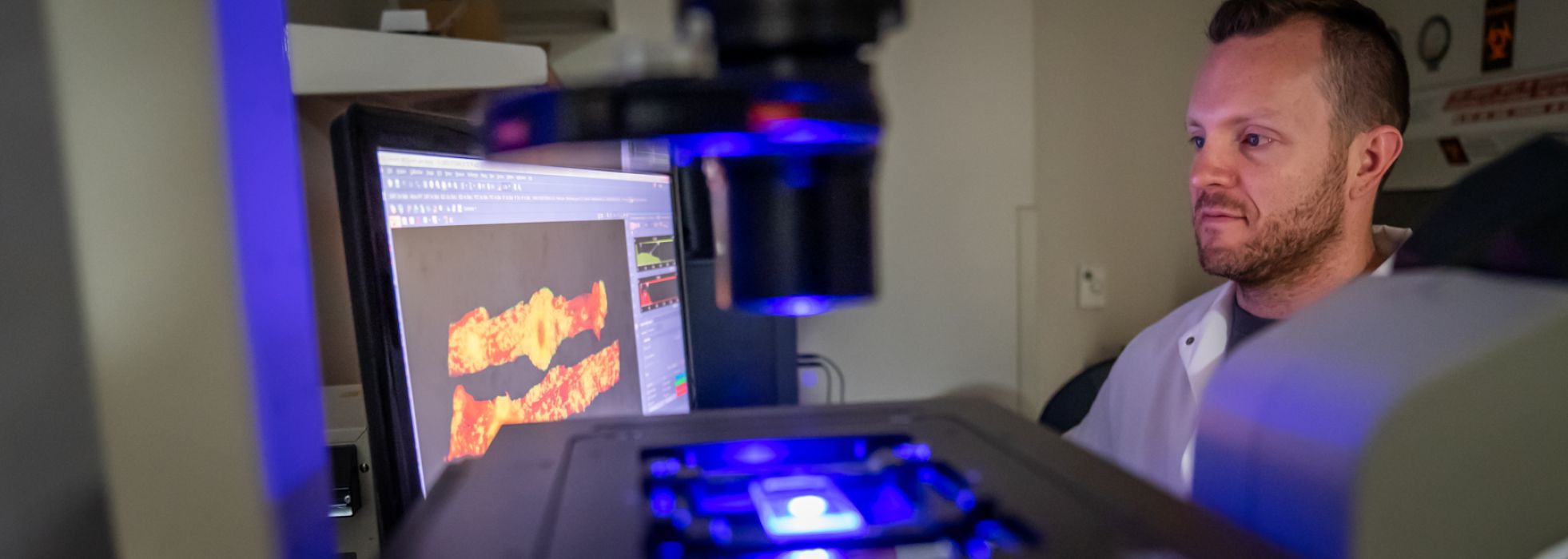Inquiry and Innovation
Research is a core component of the University of Wisconsin Gastroenterology and Hepatology fellowship. With support from investigators in our division, department and campus, you’ll participate in innovative research and learn to develop your own projects.
Learn more about our department’s research environment.
Personalized Research Experience
We structure the research experience to support your individual career goals.
- First three months of training: Meet with faculty members during our Research in Progress meeting. Learn about their research projects, identify opportunities where you can meaningfully collaborate, and clarify your research goals.
- First year: Join an existing gastroenterology/hepatology research project.
- Second year: Expand and individualize your project.
- Third year: Present at local and national meetings and submit manuscripts for publication.
Learn more about mentoring in our fellowship.
Protected Time
Our program structure provides you with protected time for research. Fellows typically have two months of research time in the first year, and five to six months in the second and third years.
Opportunities for Collaboration
Whether you are interested in basic, translational, clinical or health services research, there’s a collaborator for you here. Learn more about research in the Division of Gastroenterology and Hepatology.
Presentations, Publications, and Awards
Fellows present research findings at these conferences:
- American College of Gastroenterology
- Digestive Diseases Week
- American Association for the Study of Liver Diseases
Each fellow typically makes at least one national conference presentation, and many author at least one publication, during their training.
David Wissler Memorial Research Competition
Second- and third-year fellows also participate in the annual David Wissler Memorial Research Competition. This event honors David Wissler, a valued member of the Division of Gastroenterology and Hepatology for many years. After David's untimely death in 1987, his family created an endowment for educational activities in our division.
In each year's competition, we present a clinical and a research award. Winners receive a cash prize and certificate of achievement.
Getting Funded
Your mentor will work with you individually to identify grant funding opportunities.
Our department also offers a pilot award program for residents and fellows, and our Office of Research Services provides biostatistical services, grant writing education and other career development opportunities for learners.
